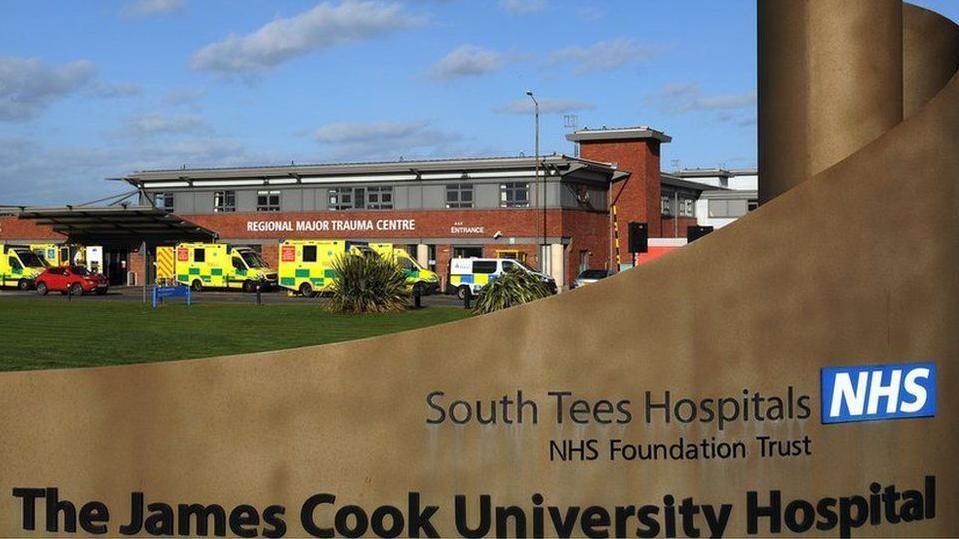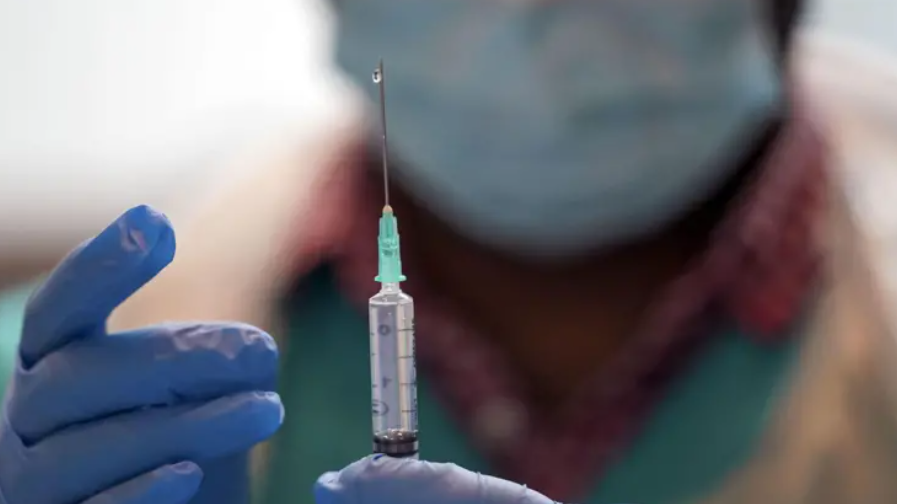Hospital hit by norovirus 'pinch point'

A rising number of norovirus cases have been seen in the last few days
- Published
Hospital chiefs say they are under pressure as a higher than expected number of people are suffering from norovirus.
Middlesbrough's James Cook University Hospital has seen a "pinch point" over the past four days, according to deputy chief nurse Amy Oxley.
South Tees Hospitals NHS Foundation Trust, which runs the site, is urging people not to visit if they have cold or flu symptoms or have experienced diarrhoea or vomiting within the past 48 hours.
The warning comes as North Tees and Hartlepool NHS Foundation Trust said it was seeing high numbers of patients with flu.
Outbreaks 'unpredictable'
Speaking to BBC Radio Tees, Ms Oxley said the number of people with flu being seen at the hospital in Middlesbrough was "settling", only for a "bigger problem" to emerge with norovirus, also known as the winter vomiting bug,
"Like North Tees, we are aiming to isolate patients into single rooms but when we run out of rooms we clearly have to cohort patients according to them having the same infection.
"We've had a lot come in with diarrhoea and vomiting and we're having the same problems around isolating them to prevent spread.
"If there's a room with six beds and three patients have symptoms, we can't use the other three beds for people who don't have that infection so it does take beds out of circulation and can really inhibit our ability to care for patients that have planned care or are coming in as emergencies."
Despite being a seasonal illness, Ms Oxley said the timing of norovirus outbreaks was still "quite unpredictable".
"We've had lots of patients coming in with it over several weeks, but there's been a real pinch point over the last four days with more than anticipated numbers which we're trying to manage."
What are the symptoms?
The main symptoms of norovirus are
feeling sick (nausea)
diarrhoea
being sick (vomiting)
People may also have
a high temperature
a headache
aching arms and legs
Symptoms start suddenly within one to two days of being infected, the NHS says.
People can usually treat themselves or their child at home by resting and having lots of fluids to avoid dehydration.
They will usually start to feel better in two to three days.
Follow BBC Tees on X,, external Facebook, external, Nextdoor and Instagram, external. Send your story ideas to northeastandcumbria@bbc.co.uk.
- Published8 January

- Published8 January

- Published8 January
